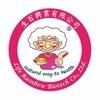
Content sponsored by:
Life Rainbow
Effect of Gano-met® on egg production in laying hens
Published: November 21, 2018
Source : Life Rainbow Biotech
Introduction
The issue of antibiotics-resistance on animals has raised the concerns of meat safety and human health. The banning of antibiotics- growth promoter in animal feed was announced in EU in 2006. Other countries are starting to follow the regulation to comply with the compulsory withdrawal periods to ensure ‘antibiotics-free’ products. During the ‘antibiotics withdrawal periods’ of livestock, though biosecurity and vaccination program of poultry can be applied to reduce risk of exposure to pathogens and to extend protection, threat of disease is existing. Supplementation in nutrients to enhance immunity system and lower the risk of pathogen can help to reach the balance between maintaining animal health and productivity.
Gano-met® (Life Rainbow Biotech Co., Ltd. Taiwan) is a liquid supplement containing methionine hydroxy analog (MHA) and Ganoderma lucidum extract that can be applied into drinking water for poultry. Methionine is a limiting essential amino acid in animal diets. Synthetic sources of dietary Met, such as MHA, those commonly practice in animal feed production to meet the nutritional requirement. More than being an amino source, MHA also contributes to other functions like an organic acid, antibacterial effect, and hepatoprotective effect. G. lucidum is a precious Traditional Chinese Medicines, which has long been used as a tonic and to prevent and treat various diseases in China. G. lucidum contains a number of bioactive compounds such as polysaccharides, triterpenes, and glycoproteins, which own health-promoting effects. G. lucidum polyssacharides, the major physiologically active compounds of this precious mushroom, help to enhance the immune system of animals against pathogens through immunomodulation and antioxidative effects.
Several stressors like laying eggs daily, rapid-growing in a short period and environmental factors have a detrimental impact on poultry performance. The objectives of these trials are to evaluate the egg production rate after administrating with Gano-met® in laying hens.
Method
A total 5,000 birds of 53-week-old hens (Hy-Line Commercial layers) were conducted in this trial that were housed in cages. A commercial laying hen diet was offered ad libitum. The hens were randomly assigned to one of 2 treatments, (1) control group and (2) Gano-met® group (1L/ton water). During the experiment, the hens had free access to feed and water. Administration of Gano-met® was done through drinking water system. Another trial of 6,000 58-wk aged birds (Hy-Line Brown Commercial layers) was also conducted in the same way. The experiment was simply divided into two treatments: (1) control group, and (2) in-feed supplementation with Gano-met® (2L/ton water). Egg production rate of both trials were recorded. The highest temperature of two farms during experimental period was 34°C and 31°C respectively. The mean of egg production during the entire experimental period was calculated.
Result of layer trial
In farm A, egg production was 83.7% of Gano-met® compared to control group (80.1%). Similar results also observed in farm B that egg production (%) of hens treated with Gano-met® (83.5%) was higher than control group (86.25%).


Conclusion
Stressful source in poultry may be caused by temperature differences and transportation, which lead to deleterious consequences such as worse growth performance and productivity, more susceptible to pathogens, and finally make economic loss for producers coming after disease. Therefore, maintaining animal health during the period of antibiotics withdrawal is important. The trials exhibited that egg production were improved in two layer farms by administrating Gano-met® in hot weather, and twice dose of Gano-met® showed higher efficiency on egg production.
Related topics:
Recommend
Comment
Share
Recommend
Reply
Recommend
Reply

Would you like to discuss another topic? Create a new post to engage with experts in the community.




